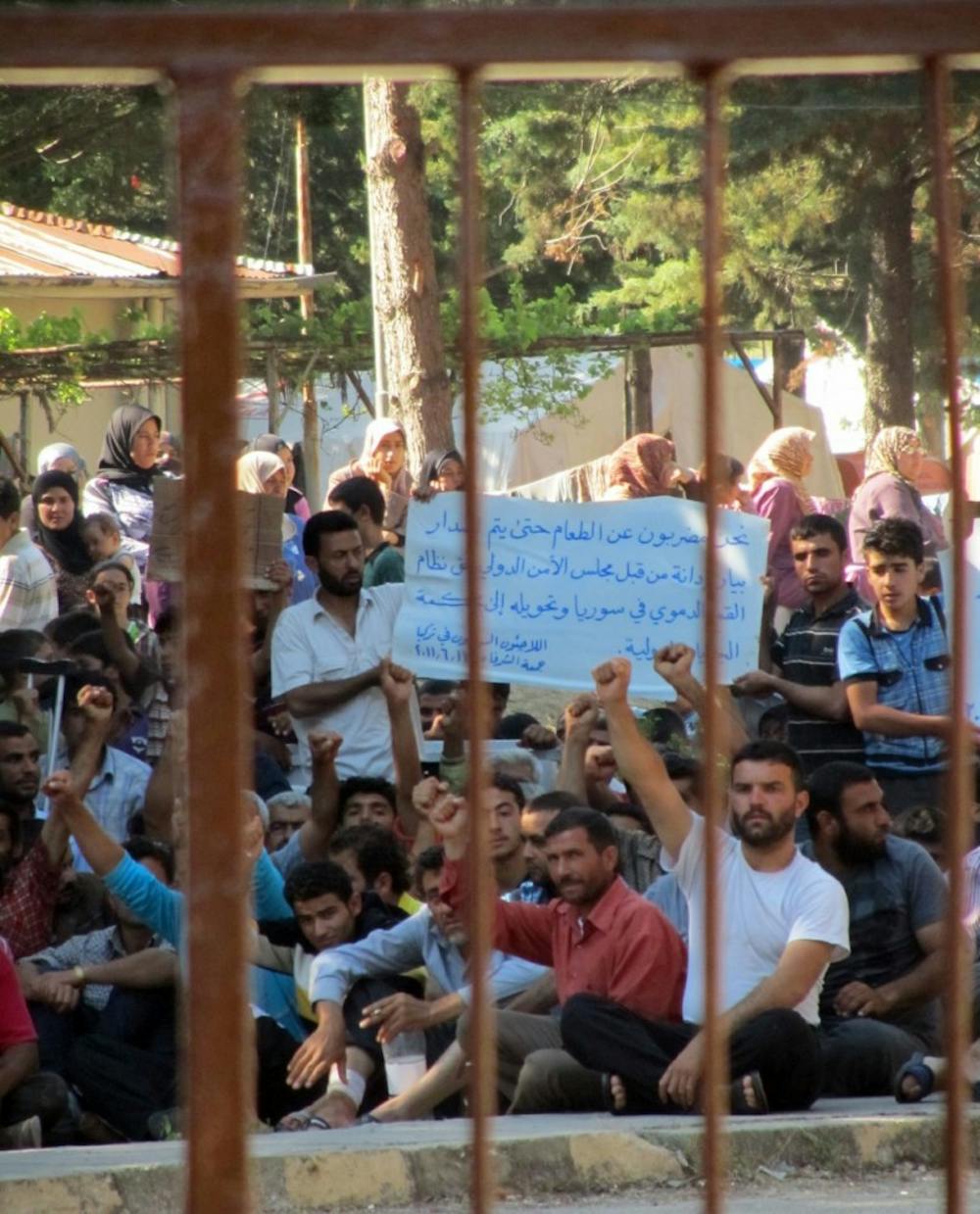Reports of protests and violence in the Middle East have made headlines this week, but four Elon University professors cautioned against accepting the Western media's established narrative of Islam and the series of recent events.
Sarah Salwen, assistant professor of political science, Laura Roselle, professor of political science, Michael Pregil, assistant professor of Islamic studies in the department of religious studies, and Shaereen Elgamal, assistant professor of Arabic, participated in a panel Thursday that discussed recent events in the Middle East, especially as they relate to the film "The Innocence of Muslims."
Although Salwen acknowledged the intensity of the protestors' response to the film has been upsetting to many Americans, she focused on how their expression aligns with American values: they are expressing their opinion and anger with the portrayal of Islam in the film, she said.
"So the protests themselves, apart from the violence that accompanies them, is not a worrisome thing," Salwen said.
Nevertheless, the conventional media in the United States has attributed a specific image to the Muslim protestors, portraying their response as anathema to proponents of freedom of speech.
"Western civilization has a pathological view toward Islam and the Islamic world," Pregil said.
Contrary to popular belief, the violent expression did not all start with a film. Pregil explained that the response is not an indication of culture or the need for violent expression, but about local traditions and politics in Egypt and Libya.
The infancy of democracy in these two nations weakens the authority of the political leaders. Furthermore, secular organizations, Christian organizations and conservative groups that don't want an effective democracy contribute to the Egyptian President Morsi's uncertainty as a leader.
"All these forces are consolidating to undermine the forces of the state," Salwen said.
While the violent protests reveal the limits of their own governments, Roselle directed the audiences' attention to how American politicians have impacted our understanding of the events.
"You have to look at this and pay some attention to how the political actors tend to craft the stories about the events that are going on," Roselle said.
While the United States presidential candidates are developing a message appealing to their constituency as the election approaches, new media does not restrict their messages to a single audience.
"Those campaign crafted messages have international repercussions," Roselle said.
Twitter challenges diplomats' traditional practices and forces them to reconsider how their messages are interpreted abroad, she said.
"You have all kinds of messages that increase potential for mobilization on the ground and leads to many people having voices and the ability to act together as groups," Roselle said.
Pregill also presented data to demonstrate the relatively small size of the protesting groups and highlight the differences between the current protests and those during the Arab Spring. In contrast to the images that emerged during the revolution, we receive a narrow perspective of the protestors responding to the film.
"Why?" Pregill asked. "Because they are smaller groups."
Elgamal, who lived in Egypt for 28 years after her birth there, explained how her perspectives about the Middle East compared to those of the American public.
"I keep up with the media, but I'm speaking from the heart now," she said.
Elgamal described Egyptians' respect for American ideals, such as the freedom of expression, but said they are still defensive of speech used to criticize their religion.
"How can America, with all its might, start this kind of freedom of speech," she said, conveying her interpretation of Egyptians' thought. "We love freedom of speech, but not this kind."
Elgamal also identified the high level of illiteracy and emotional nature of the people as instruments in the violent response.
"You put ignorance and anger together, and it's a deadly mix," she said.


